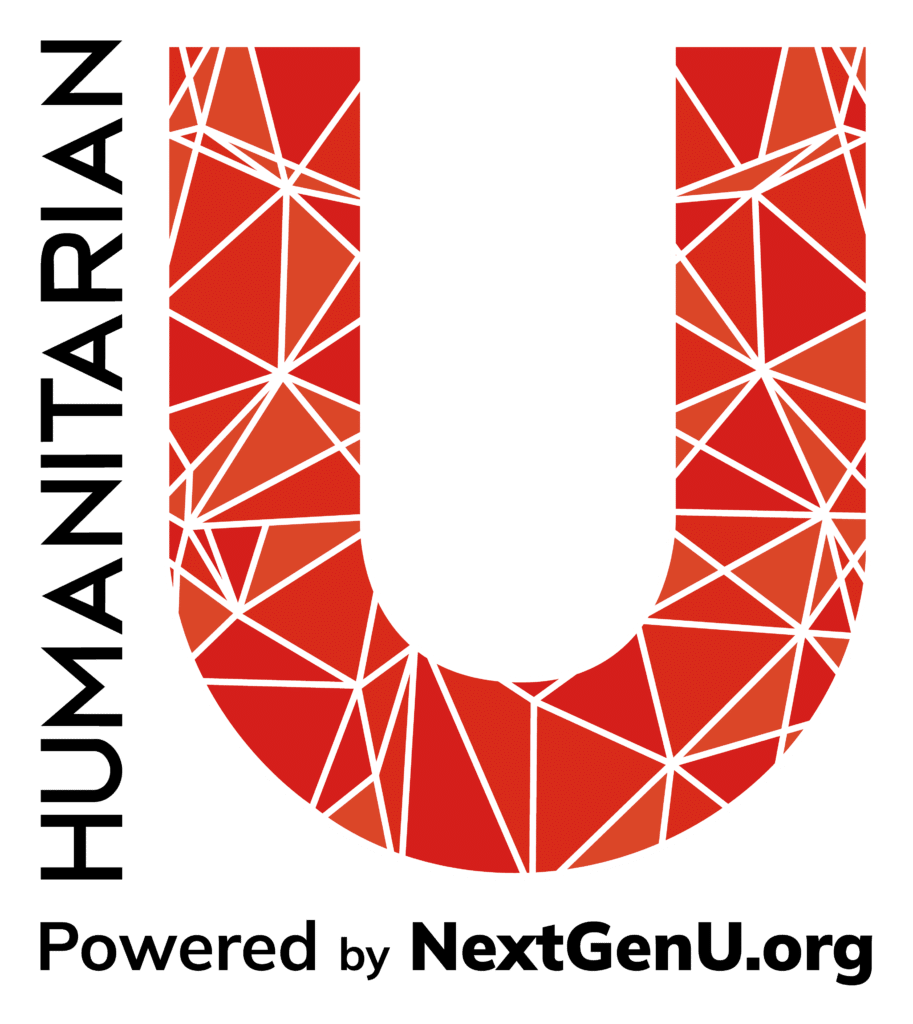Press release Montreal January 23, 2019
Humanitarian U, the Humanitarian Leadership Academy and MEDAIR, have today (23 January) launched a new report looking at the impact that e-learning has on humanitarian aid. The report ‘Pilot evaluation to assess the impact of e-learning on humanitarian aid work’, is the first of its kind to research the impact e-learning has and enables us to improve e-learning for humanitarian workers and improve aid delivery.
The report has found that humanitarian organizations and aid organizations need to:
- Ensure that appropriate training is available that will strengthen and support a learner’s experience in learning.
- Better educate funders regarding the essentiality of supporting and strengthening organisational capacity to manage and coach learning processes.
- Organisational commitment to the individual learning process is necessary if transfer of learning is to successfully contribute to changes to the individual learner’s quality of work.
- Ensuring greater value of donor support not only by increasing investment but also assuring greater influence by donors to strengthen the sector for training & evaluation.
The need for continued learning has been recognized, and now the humanitarian sector needs to take a consistent approach in training their staff and volunteers.
“I am pleased that after having envisioned this project over five years ago that we are finally able to produce this novel, rich and innovative report on the impact of eLearning on humanitarian aid work. We have made several recommendations based on our findings that should generate some reflection and discussion as the sector looks towards standardized competencies and assessment strategies for professional development and certification.”
-Kirsten Johnson, MD, MPH, CEO, Humanitarian U
“With the disastrous effects of climate change leading to conflicts over arable land and water resources, the need for strengthened capabilities to respond to crisis grows stronger in the Global South. The work of Humanitarian U and the Academy responds to this need through the provision of online and blended learning to engage humanitarian workers on the ground, understanding the impact of this type of training became paramount and of vital mutual importance to both organizations.”
-Paul Gunaratnam, Head of Strategy, Planning and Impact Humanitarian Leadership Academy
In summary:
This study serves to better understand how competency-based eLearning training programs are having an impact on humanitarian work. Not only ‘how’ these have an impact, but specifically in ‘what ways’ the transfer of learning from these training program experiences are ultimately contributing to strengthening and/or improving coordination and service delivery in the system of humanitarian field work. Specifically, the study aimed to develop a system of measurement tools that can support the assessment of the level of impact that competency-based eLearning training programs are having on humanitarian work in the field.
The scope of this study specifically addressed areas of inquiry that target ways the training is having successful results on the work of the learners and their organizations. These include but are not limited to perception of:
- Level of competency from learning engaged
- On the job performance
- Impact of training on programmatic effectiveness
- Impact of training on programmatic efficiency
- Feelings of personal well-being and security
- Perception of professionalism
- Future career advancement
- Greater impact (lives saved)
ABOUT HU: Humanitarian U is a leader in delivering professional online certification and training to humanitarian workers around the world. HU’s competency-based certificate programs yield results, create career paths and better equip humanitarians for professional work in the field. HU’s alumni affect positive change for beneficiaries, work around the world for hundreds of organizations, and offer the highest quality aid to people displaced by conflict and natural disasters.
Founded in Canada in 2011, Humanitarian U supports best practices in humanitarian training and sets a global standard for humanitarian education and training. Our goal is to increase the preparedness and effectiveness—and thus the safety—of humanitarian actions worldwide. We offer programs geared toward existing and aspiring humanitarian workers from a wide range of organizations, including NGOs, governments, institutions, the medical community, and other relief and non-profit groups.
To register for a program, to become part of the Humanitarian U community, to see world facts and statistics about humanitarianism, or discover more about Humanitarian U, please visit www.humanitarianU.com
ABOUT THE HUMANITARIAN LEADERSHIP ACADEMY: The Humanitarian Leadership Academy is a global learning initiative set up to facilitate partnerships and collaborative opportunities to enable people to prepare for and respond to crises in their own countries. It harnesses cutting edge technology to ensure a rapid-response and on-the-ground training to those on the front line of a crisis. For more information go to www.humanitarianleadershipacademy.org
ABOUT MEDAIR: Medair is a humanitarian organization inspired by Christian faith to relieve human suffering in some of the world’s most remote and devastated places. We bring relief and recovery to people in crisis, regardless of race, creed or nationality. As signatory to the Code of Conduct for the International Red Cross and Red Crescent Movement and NGOs in Disaster Relief, we believe that aid should be given to everyone who is in need, and not be used to further a particular political, social or religious viewpoint. Our first and last considerations are the needs of the people we serve. We save lives in emergencies and then stay to help people recover from crisis with dignity—working side by side with communities to leave a lasting impact. We do whatever it takes to bring relief where it’s needed most. We provide a range of emergency relief and recovery services: Health care and nutrition. Safe water, sanitation, and hygiene. Shelter and infrastructure. In all we do, we pursue the highest professional standards of quality, accountability, and sustainability. Our experienced teams carry out our projects in close connection with communities, listening to their needs, helping them improve their essential services, and providing them with training for the future. www.medair.org

